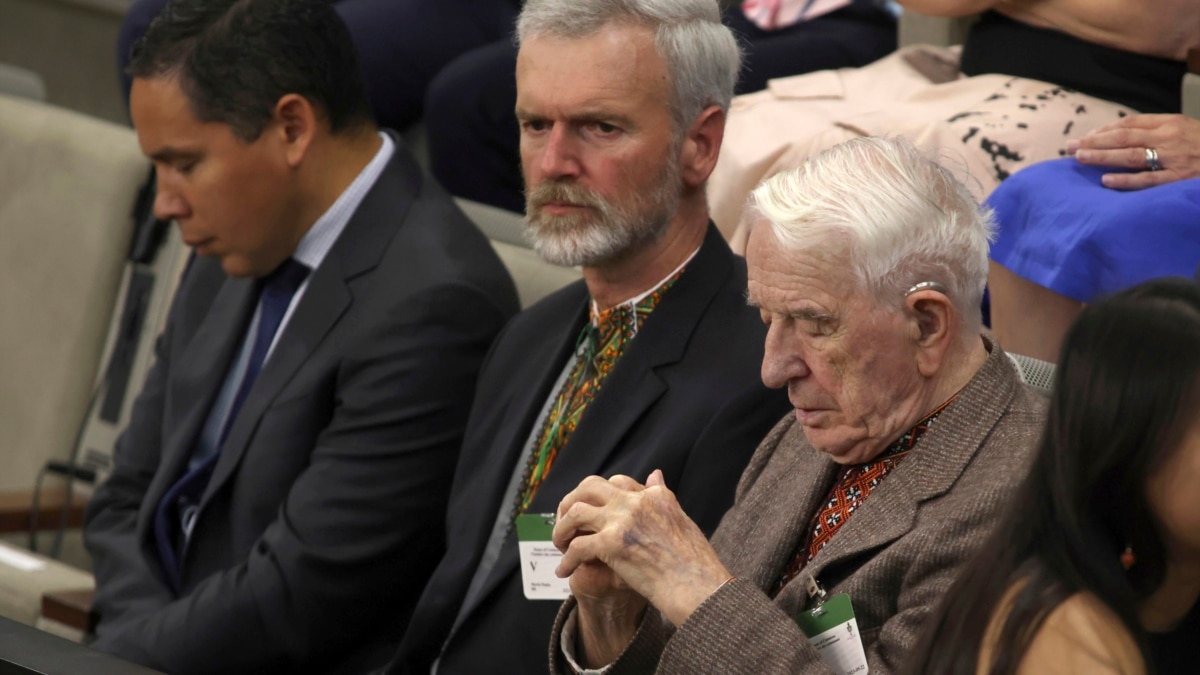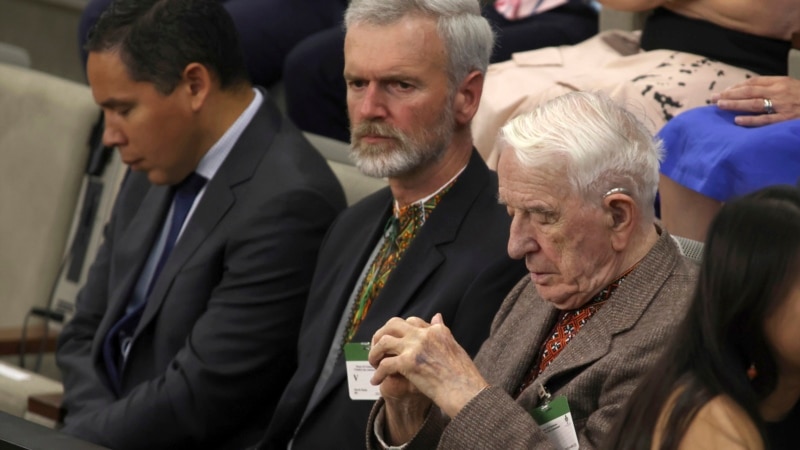Russia’s US Ambassador Uses Canada Nazi Scandal to Justify Moscow’s War in Ukraine

On September 22, following an address by Ukrainian President Volodymyr Zelenskyy to a joint session of the Canadian Parliament, Anthony Rota, speaker of the House of Commons, identified one of the attendees, 98-year-old Yaroslav Hunka, as a Ukrainian veteran of World War II. Rota called him a hero, and Hunka received a standing ovation.
Two days later, Ukrainian journalist Lev Golinkin revealed in the U.S.-based Jewish news outlet The Forward that Hunka had served in the 14th Waffen Grenadier Division of the SS, the military wing of the Nazi Party.
Russian Ambassador to the United States Anatoly Antonov used the incident to justify Russia’s war in Ukraine.
“Rewriting the history of World War II is unacceptable. The Brown Plague must be stopped. This is exactly what the Russian Armed Forces are doing in Ukraine under the special military operation.”
That is false.
Contrary to rewriting World War II history, Canada’s leadership expressed embarrassment and apologized for the incident.
Immediately after The Forward’s article was published, Rota took responsibility for inviting Hunka and apologized, saying that neither the Canadian leadership nor Zelenskyy knew about his intention to invite Hunka, let alone Hunka’s true identity.
Prime Minister Justin Trudeau called the incident “deeply embarrassing to the parliament of Canada and by extension to all Canadians.”
Canadian Foreign Minister Melanie Joly said Rota’s actions were “absolutely unacceptable” and called on him to resign.
Rota resigned on September 26.
Two Canadian Jewish organizations — the Friends of the Simon Wiesenthal Center and the Center for Jewish and Israeli Affairs — said they were ” deeply disturbed” by the Canadian Parliament’s honoring of a veteran of an SS division that participated in the Holocaust.
Antonov also accused U.S. State Department spokesperson Matthew Miller of having had a “vague” reaction to the Nazi scandal in Canada.
During his September 25 press briefing, Miller appeared to not know about the scandal.
Asked about it again during his briefing the following day, Miller said:
“I saw that today. The Canadian government said they were not aware of that individual’s past and expressed regret for it, and that seems like the appropriate step.”
Antonov’s claim that Russia’s intervention in Ukraine is a “special military operation” to stop the “Brown Plague” — meaning fascism — is false.
Yet while Hunka’s appearance in the Canadian Parliament “has sent ripples across the globe,” Russia has “gone into overdrive” to launch an anti-Ukraine disinformation campaign about the incident, one involving Russian state officials, lawmakers, diplomats and state-controlled news outlets, the Toronto Star reported on September 26.
The Russian Embassy in the United Kingdom falsely stated on X, the platform formerly known as Twitter, that the Ukrainian postal service was selling stamps with Hunka’s face on them, claiming this shows the true nature of the Canadian and Ukrainian regimes.
The Russian Embassy in Canada posted a statement on social media:
“Citizens of this country must once again think about who their leaders glorify and what kind of junta they support in Ukraine.”
Russia’s RIA Novosti state news agency published 10 articles about the scandal on September 25 and 26.
RT, the Russian state-controlled international news television network, published 15 articles from September 24 to 27, denouncing Canada and Ukraine for allegedly supporting Nazism.
On February 24, 2022, Russian President Vladimir Putin announced a “special military operation” to “demilitarize and denazify” Ukraine. It was, in fact, a Russian invasion designed to subjugate a democratic and peaceful country whose president and parliament were elected in free and democratic elections.
Statements by Putin and in Russian state propaganda about the need to “denazify” Ukraine are part of a disinformation campaign that began in 2014, when Viktor Yanukovych, Ukraine’s then pro-Russian president, was overthrown in a popular uprising.
As for the Russian ambassador’s outrage over rewriting World War II history, his government has been notorious for doing that. Indeed, historic revisionism and exploitation of World War II-era patriotic sentiment has been a key part of the Kremlin’s propaganda strategy.
In August 2023, Russia introduced new Russian history textbooks for high school students in the areas of Ukraine it has occupied. These textbooks misrepresent the Soviet Union’s role in World War II and justify Russia full-scale invasion of Ukraine, which they call “an ultranationalist state.”
This article has been archived for your research. The original version from Polygraph.info can be found here.



